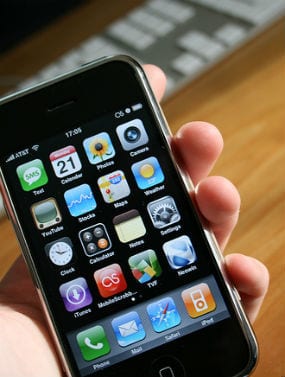The following post appeared in Mobile Enterprise Magazine, and is excerpted with permission. You can see the original post here.
 New research launched by Acision, a global provider in mobile messaging, reveals that SMS is still the most prevalent messaging service in the U.S. today when compared to other messaging services such as ‘Over the Top’ (OTT) Instant Messaging (IM) (OTT/IM) services.
New research launched by Acision, a global provider in mobile messaging, reveals that SMS is still the most prevalent messaging service in the U.S. today when compared to other messaging services such as ‘Over the Top’ (OTT) Instant Messaging (IM) (OTT/IM) services.
With 61 percent of respondents stating they own a smartphone today, 91 percent of this demographic reported using SMS regularly despite having the ability to access different OTT/IM messaging services on their device. In fact, the five most popular OTT/IM services actively used by smartphone owners today included Facebook (37 percent), Skype (17 percent), Twitter (17 percent), Apple iMessage (11 percent) and Blackberry Messenger (10 percent).
WhatsApp, the only operating system independent smartphone OTT/IM application was used by just 5 percent of U.S. consumers. This demonstrates that while OTT/IM services fuel overall messaging traffic, services are fragmented and overall usage is far lower than SMS, and so cannot be credited as a substitute for the humble text.
The research, which was conducted by Vanson Bourne and examines U.S. consumers’ messaging habits and preferences, is the most comprehensive study to date on the mobile messaging landscape. Surveying 1,000 mobile U.S. device users across smartphone owners (61 percent) and feature phone only owners (39 percent), the research highlighted that two-thirds of the biggest SMS users, smartphone owners, also stated they needed SMS today (65 percent) – with 45 percent of these saying they would be lost without it, even though they have easy access to OTT/IM services on a smartphone. Reliance on SMS was particularly high among younger users aged 18-25 (79 percent), highlighting the immense value and dependence of messaging in consumers’ lives today.
The research also indicated that U.S. consumers send an average of 107 SMS messages per week – top of all the messaging services. With 62 percent of U.S. smartphone users having unlimited SMS bundles this concludes that the right pricing or package encourages SMS usage and may be an influencing factor in the popularity of SMS vs OTT.
View the rest of this article at Mobile Enterprise Magazine.
More: Has Field Service Left BlackBerry in the Dust?
Click here to download a free whitepaper, “Five Steps to Make Field Service Profitable.”

Share this: